- Home
- Janet Dailey
To Tell the Truth Page 7
To Tell the Truth Read online
Page 7
"How thoughtful of John to give me my old room!" Rosemary exclaimed as Andrea opened the door to the damask bedroom, a name she had attached to the room because of the beautiful, old damask bedspread that covered the antique four-poster bed. "He must have remembered how fond I was of the spectacular view of the mountains from this window." She smiled over her shoulder at Andrea. "And Nancy has her same room, too. It's like coming home."
"We expected your husband might accompany you. That's why the adjoining bedroom is prepared for—" Andrea stumbled, unable to speak Tell's name "—your son. I'm sure Mrs. Davison and I could quickly enough get his old room ready. I'm afraid I don't know which one it is."
It was still difficult for her to accept that Tell had spent any time in the house that was her home.
"He used to have the room on the right where the mock tower is." There was a faraway look in Rosemary Collins's eyes as if she were silently reminiscing about a bygone time. "It's a bit separated from the other bedrooms and he always used to like that. If it wouldn't be too much trouble, I'm sure he would like to stay in it."
Andrea's breathing became shallow and uneven as a warm pink flowed into her cheeks. "I'm sorry, Mrs. Collins," she murmured self-consciously. "That's…in use. It's, er, my room."
"Your room? I…" The startled voice stopped, but Andrea completed the thought to herself. Rosemary Collins had probably thought that she shared the master bedroom suite downstairs with John. "It doesn't matter," the woman said and shrugged quickly. "Men are seldom as sentimental about such things as women are."
"So you have the tower room?" Tell's voice came mockingly from the connecting door between the two bedrooms.
"Yes," Andrea breathed, her gaze bouncing away from his. "If you'll excuse me—" the request was made to his mother "—I'll have to get these flowers in some water. Lunch will be in about an hour. Please make yourself at home."
Her dignified retreat carried her to the kitchen. There, her legs nearly dissolved as a long-postponed reaction set in, but she wasn't allowed time to adjust to Tell's arrival and whatever implications it might contain or the unforeseen difficulties that might accompany it.
Mrs. Davison's magic wand required a helping hand, and she deputized Andrea to supply it as she bustled about the kitchen to come up with the last-minute items to supplement the original menu for three to extend it to seven—since Adam had received his hoped-for invitation to join them. When the task was successfully accomplished, Andrea barely had time to slip upstairs to her room and change before lunch was served.
John supervised the seating arrangements, placing his two female guests on either side of him at the head of the table. That left Tell and Adam to sit at Andrea's end of the table. Mrs. Davison chose not to eat with them, insisting that she would rather have her meal by herself after they had lunched when she could eat in peace.
Andrea wished she could have had the same alternative. She would rather have eaten alone than endure Tell's cold indifference to her presence. He pointedly avoided addressing any comment directly to her, cutting her out of his conversation with Adam as if she weren't there. To try to carry on polite conversation with the women at the other end of the table was impossible, so Andrea sat through the meal in uncomfortable silence. It was a silence that no one seemed to notice, except perhaps Tell, who cuttingly enforced it.
Gladly, she insisted at the end of the meal that the others take their coffee on the cobblestoned veranda while she helped Mrs. Davison clear the lunch dishes. She dallied in the kitchen until the housekeeper finally shooed her out. There weren't any more excuses for not joining the others.
But how could she treat Tell as a stranger when her every nerve end screamed with the knowledge of his touch, his kiss, his embrace and the love they had shared so briefly? When Andrea thought of the way it had been, and that they might never kiss again, it seemed like a cruel game of pretense.
For a numbed moment she stood in the corridor, dredging her inner resources for some reserve of courage and stamina. Then she heard male footsteps descending the stairs—firm deliberate movements that had to belong to Tell. A fleeting second later she knew she had to speak to him alone and this was her prime opportunity.
As she reached the end of the corridor, Tell was at the bottom of the open staircase turning toward the continuing hallway that would lead him to the rear of the house and the veranda entrance.
"Tell?" Her unconsciously pleading call halted him and he slowly turned around to face her, his leanly chiseled face aristocratically cold and arrogantly hard.
Now that Andrea had his attention without anyone listening, she didn't know what to say. She searched his uncompromising expression for some sign that the months apart might have tempered his attitude with compassion. Nothing indicated that he had yielded any measure of his contempt for her as he nonchalantly placed a cigarette between the sardonic line of his lips and snapped a lighter to it. Still she couldn't speak.
"Did you arrange this little rendezvous, Andrea?" His low-pitched voice was ominously soft.
"I had to talk to you alone," she murmured, trying to accept that this man of stone was the same one who had loved her so passionately. "I heard you coming down the stairs and—"
"Don't pretend naïveté that you don't possess!" he snapped viciously. "You know very well that I'm referring to the invitation that was issued to my mother and the postscript to remind me how long it had been since I accompanied her."
Andrea breathed in sharply at his attack. "Tell, I swear I didn't know who you were. I admit that I knew John had invited your mother, but I didn't know she was your mother. That's the truth."
A cloud of smoke was exhaled between them. "The problem with people who don't make a habit of telling the truth, Andrea, is that others seldom believe them when they do."
"It is true!" she repeated forcefully. "I even thought you were Nancy's fiancé until Mrs. Collins said you were her son."
"I see," Tell mocked. "John knew very well who I was."
"That's what I wanted to talk to you about." Andrea stared at her tightly clasped hands. "I didn't tell him about you."
"John must be more gullible than I thought. How did you explain what I was doing in your room?" he jeered. "Fixing a leaking tap?"
"No, of course not," she sighed heavily. "He knows I met someone, but I never told him your name."
"Naturally, he was very understanding and forgave you for straying. What else can a wealthy, old man do when he's confined to a wheelchair?"
"There was nothing to forgive." Her chin lifted proudly as she met the obsidian glitter of his gaze.
"Wasn't there?" A brow arched. "We have two completely and totally different opinions of fidelity."
"You won't even try to understand." Her shoulders sagged with the hopelessness of trying to explain.
"What happened between us is not something I'm liable to brag about, especially to John. Your secret is safe with me." His mouth thinned grimly. "As for you and Adam, I sincerely hope that John finds out what a two-timing tramp he has for a wife."
"Adam is engaged. He'll be married next month," Andrea declared angrily.
"That's a convenient red herring. It should throw John off the scent for several months. Maybe by that time you can find someone else to gratify your desires," Tell replied immediately without even a fraction's hesitation at her announcement.
Her chest constricted painfully. "How can you believe that?" she murmured.
"It's easy. I know you."
"You don't know me," Andrea protested numbly, making a slight negative movement of her head to one side. "You won't listen to me. You won't let me explain."
But Tell ignored her remarks, studying the glowing tip of his cigarette. "Mother and Nancy will be staying for two weeks as planned. I will find a convenient excuse to leave Sunday afternoon. You needn't worry." A slicing cynical glance swept over her. "I'll make sure it's believable so John won't realize that it's because I can't stand to be in the same house with his
wife."
"Tell?" He was turning away to leave. Despite his jeering wounding mockery and contempt, Andrea didn't want him to go.
"We have nothing more to discuss, Andrea," he said coldly.
Closing her eyes against the scalding tears, she breathed in deeply. "Would you tell John and the others that I'll be out in a few minutes?"
"My pleasure." His mouth curved with cynical politeness as he arrogantly inclined his head before walking away.
Tears were not permitted to fall. There wasn't enough time to hide the results for Andrea to give in to the pangs of self-pity and heartache. She used the delaying time to reassert a grip on her composure before walking to the veranda.
The conversation halted for a few minutes when she arrived, then began again as she took a seat on the wicker lawn sofa beside Nancy. Tell was sitting in the large wicker chair on the left, for the most part blocked from Andrea's vision by his sister. John and Rosemary dominated the conversation with reminiscences of past adventures. Andrea inserted a comment occasionally whenever she felt her silence had been too prolonged.
Tell didn't join in at all. If she hadn't been so sensitive to his presence, she might have forgotten he was there. But the wispy trail of cigarette smoke lazily twisting across the veranda would have reminded her.
In the latter part of the afternoon, John pivoted his wheelchair toward the house, announcing that he was going to look for an old photograph album with some early pictures of a party he and Rosemary had attended. Andrea immediately offered her assistance, but John waved her aside, choosing Rosemary to accompany him instead. Uneasily, Andrea leaned back against the sofa cushions, and no idle subject sprang to mind to fill the awkward gap left by John's departure.
"You have a beautiful home here," Nancy Collins said sincerely. "I've always loved this old house. Scott and I will probably never be able to afford anything like this…not that I mind really," she added quickly with a contented and happy smile.
"John mentioned that you were engaged. Is Scott your fiancé?" Andrea seized on a means to keep the conversation going.
"Yes. His name is Scott Hanson." Proudly she held out her hand for Andrea to see her engagement ring, a small diamond solitaire with flanking emerald chips.
"How long have you known him?"
"About two years. Another boy took me to a fraternity dance, and Scott was there. The minute I saw him I knew that was it," Nancy said, beaming. "Of course, daddy didn't approve of him at first because Scott's background is so much different from ours. We didn't become officially engaged until last January when Scott graduated."
"When's the wedding?" Andrea inquired.
"Not until December," the young girl sighed, her large blue eyes revealing her regret at the long wait.
"That's a long courtship," Andrea offered sympathetically.
"Scott's working for an oil company right now. He's on sort of a probationary period. We're waiting until he's sure he has a job." A mischievous twinkle sparkled in her eyes. "And we want to make sure that daddy understands that Scott is not marrying me for the family fortune."
Tell pushed himself out of the chair, his sudden movement choking back the response that Andrea had started to make. With a lazy smile, he walked to stand in front of his sister. Unwillingly, Andrea tilted her head back to gaze up at him, drawn by the flash of his smile, but his gaze was cold when it sliced to her.
"It's commonly known as marrying for love, Mrs. Grant," he said with cutting softness. "I don't know if you're familiar with that motive."
She heard Nancy's quickly indrawn breath of shock. Wounded, Andrea tensed to keep the hurt from being shown too clearly in her expression.
"Are you, Mr. Stafford?" she countered.
"I'm a bitter believer in it," Tell answered dryly. "There's something I'm curious about. Can a man buy his wife's fidelity with—" his hand reached out to touch the pearl choker, burning her neck, the flames reflected in her cheeks "—expensive jewelry?"
"Tell!" Nancy's horrified whisper begged him to stop.
"I wouldn't know, Mr. Stafford." Pride quivered in her voice. "John hasn't tried to buy mine."
"Maybe he knows he can't," he offered with jeering amusement, towering above her for an instant longer before he walked away, leaving the cobblestoned veranda for the landscaped lawn without another word.
At his departure, Andrea let her lashes flutter shut against the pain and pressed her lips tightly together.
"I'm sorry, Andrea," Nancy murmured.
She darted a glance at the knitted frowner concern on the girl's face, smiling faintly before she looked away. "It's all right, Nancy," she sighed. "I've become used to such comments."
It was a lie. Even the curiously raised brows of a stranger at her marriage to John had the ability to hurt. Tell's contempt and censure was nearly a mortal wound.
"It was unforgivable for him to speak to you that way!" Nancy's angry declaration was accompanied by a glowering look at her lean dark brother, now some distance away.
"My father once told me—" Andrea breathed in deeply "—that what you can't forgive, you must forget, and what you can't forget, you must forgive."
"Do you believe that?"
"I believe it." A smile curved bitterly inward. "I just don't know how to apply it." Brushing an imaginary strand of hair from her face, Andrea rose to her feet. "Would you excuse me, Nancy? I think I should see if Mrs. Davison needs any help in the kitchen."
"Of course. I understand."
Andrea didn't see Tell again until they all met in the living room before dinner. A glance at his granite face told her nothing. She couldn't guess whether she should be prepared to be ignored or subjected to his ridicule in front of others. The strain of not knowing what to anticipate was in the taut lines around her mouth while the agony of wanting his love and knowing he would never give it dulled her eyes.
"I see you've had the tennis court resurfaced, John," Tell commented.
"Yes, a couple of years ago," he acknowledged. "Andrea enjoys playing and the court had fallen into rather bad shape from lack of use."
Tell's mocking gaze slid complacently to her. "Where do you find your partners, Mrs. Grant? I somehow can't picture Mrs. Davison out there swinging a racket."
Her mouth tightened as she saw the quizzical look John gave him. "I have friends," she replied noncommittally.
"Adam and his fiancé come out occasionally," John explained, "but mostly it's her tennis instructor from Medford, Leslie Towers. She's quite good, Tell," he added with a touch of pride. "Maybe tomorrow if the weather holds, you and Nancy and Andrea can play a set."
"Maybe," Tell agreed lazily, his mouth curving into a cold smile. "It might be interesting to find out what kind of game she plays."
John missed the biting innuendo, but Andrea didn't. Judging by the dark blue anger that leaped into Nancy's eyes, she didn't either.
"I hope she's good enough to beat you, Tell." It was small consolation to have his sister rushing to her defense.
"She's good, sis, but not that good," he said.
"Don't start bickering, you two," Rosemary Collins interrupted with a light laugh that revealed her ignorance of the undercurrents flowing between Andrea and Tell and intercepted by Nancy. "Why don't you get us a drink, Tell?"
"That's a good idea," John agreed. "I'll have a vodka martini."
"Is the bar still in the same place?" Tell inquired, allowing his mother to divert his attention from Andrea.
"It certainly is," John said, smiling.
Walking to the narrow side of the living room, Tell stopped in front of an ornately carved series of shelves, on which books and figurines were scattered. A series of pear blossoms had been carved on either side of the frame. He turned one of them and the shelves swung out to reveal cut-glass goblets of varying sizes and a supply of drink.
"I didn't know that was there!" Nancy exclaimed.
"I'm not surprised," her mother said. "The last time you were here, you weren't old enough t
o drink."
"I still never guessed it was there," she replied. "It's so artfully concealed."
"It used to be a cupboard," John explained. "My father had it converted into a bar complete with a refrigerator and a small mixing counter during the Prohibition days. He was so proud of it that I think everyone in the country knew it was there," he said with a very satisfied chuckle.
"This house, this entire area has seen a lot of things," Rosemary Collins commented idly, accepting the iced glass that Tell handed her. "A lot of gracious entertaining was done here. A lot of young men were sent to Medford in the early nineteen hundreds by their wealthy and strict parents from the East to mend their ways. Most of them stayed to build a new life. My grandparents had a summer home on the Rogue River. Every summer they'd leave San Francisco and spend it here. My mother attended St. Mary's Academy for a while."
"Yes, and in the winter there was a turnabout," John smiled, gazing into the martini Tell had given him. "My family would go to Carmel or Pebble Beach and we'd be entertained by your San Francisco friends. Of course, it wasn't all good times. I imagine there are some painful memories of the tent city that was erected in Medford for the survivors of the 1906 earthquake in San Francisco."
"But the stories that my mother told me of the theater and opera held here more than make up for that," Rosemary smiled, glancing at Nancy and Andrea. "Enrico Caruso performed here."
"That must have been something," Nancy mused.
"Here you are, sis." Tell held out a crystal glass.
She glanced up absently before accepting it. "Thanks."
Andrea held her breath as Tell turned toward her, meeting his hooded look reluctantly. His fingers were gripping the top of the glass, holding it out to her while making sure there would be no accidental contact when she took it from him. It hurt that he didn't want to feel her touch.
"I'm sorry. Tell." John spoke up quickly. "I forgot to mention that Andrea doesn't drink anything stronger than Coke."
She had been staring at the glass as she reached for it, finding it painful to meet his indifferent eyes. But at John's statement, her gaze was jerked to Tell's face. The glass was close enough for her to tell by sight and smell that it contained only Coke. He had remembered her aversion to alcohol and automatically served her an innocuous drink. His expression was grim as he returned her look.

 Hart's Hollow Farm
Hart's Hollow Farm Holding Out for Christmas
Holding Out for Christmas It's a Christmas Thing
It's a Christmas Thing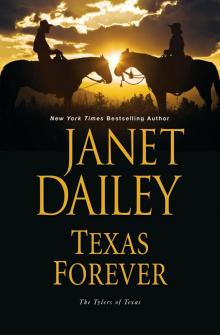 Texas Forever
Texas Forever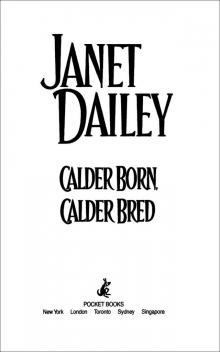 Calder Born, Calder Bred
Calder Born, Calder Bred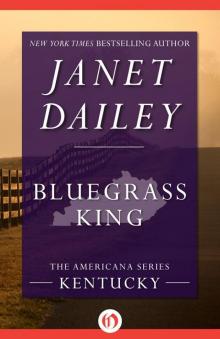 Bluegrass King (The Americana Series Book 17)
Bluegrass King (The Americana Series Book 17) One of the Boys
One of the Boys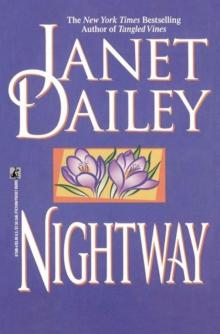 Nightway
Nightway This Calder Sky
This Calder Sky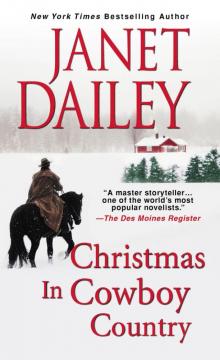 Christmas in Cowboy Country
Christmas in Cowboy Country The Widow and the Wastrel
The Widow and the Wastrel Separate Cabins
Separate Cabins Darling Jenny
Darling Jenny With a Little Luck
With a Little Luck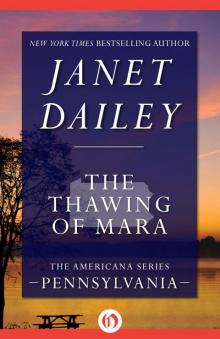 The Thawing of Mara
The Thawing of Mara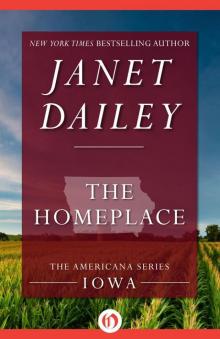 The Homeplace (The Americana Series Book 15)
The Homeplace (The Americana Series Book 15)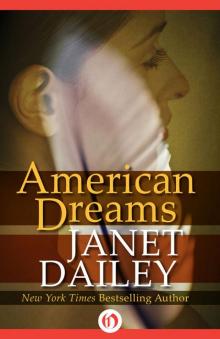 American Dreams
American Dreams Merry Christmas, Cowboy
Merry Christmas, Cowboy Lord of the High Lonesome
Lord of the High Lonesome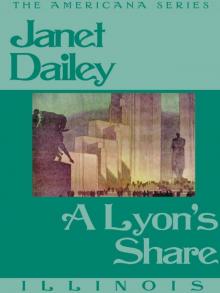 A Lyon's Share
A Lyon's Share After the Storm
After the Storm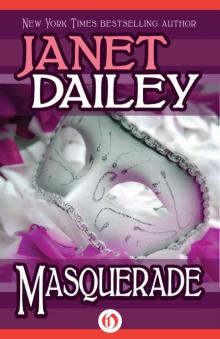 Masquerade
Masquerade Long, Tall Christmas
Long, Tall Christmas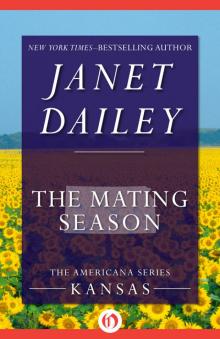 The Mating Season
The Mating Season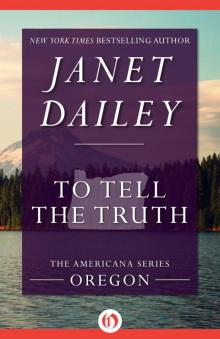 To Tell the Truth
To Tell the Truth A Land Called Deseret
A Land Called Deseret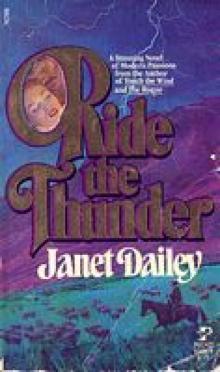 Ride the Thunder
Ride the Thunder That Boston Man
That Boston Man Wild and Wonderful
Wild and Wonderful Sonora Sundown: Arizona (The Americana Series Book 3)
Sonora Sundown: Arizona (The Americana Series Book 3) Texas Tall
Texas Tall Giant of Mesabi
Giant of Mesabi The Bride of the Delta Queen
The Bride of the Delta Queen Wildcatter's Woman
Wildcatter's Woman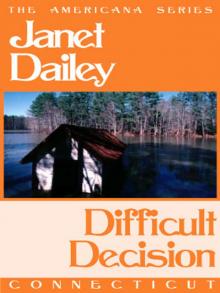 Difficult Decision
Difficult Decision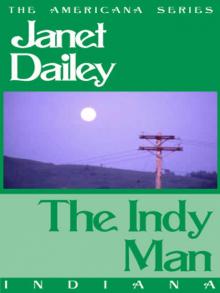 The Indy Man
The Indy Man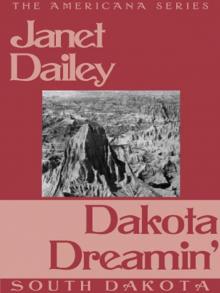 Dakota Dreamin'
Dakota Dreamin' Kona Winds
Kona Winds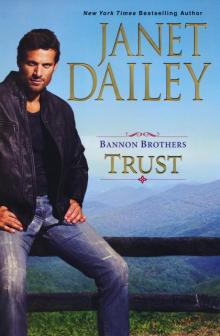 Bannon Brothers
Bannon Brothers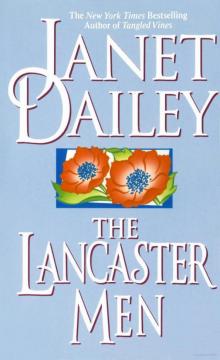 The Lancaster Men
The Lancaster Men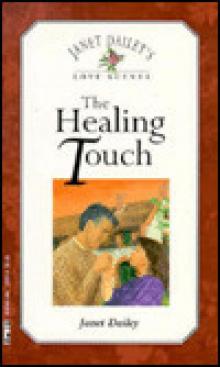 janet dailey- the healing touch
janet dailey- the healing touch Strange Bedfellow
Strange Bedfellow Leftover Love
Leftover Love Big Sky Country
Big Sky Country My Kind of Christmas
My Kind of Christmas You're Still The One
You're Still The One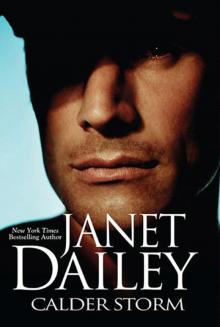 Calder Storm
Calder Storm Calder Pride
Calder Pride Low Country Liar
Low Country Liar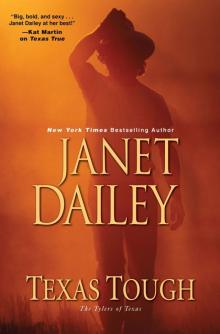 Texas Tough
Texas Tough Foxfire Light
Foxfire Light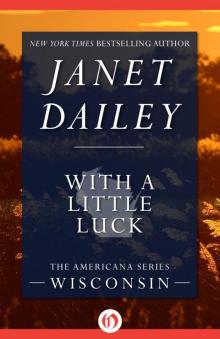 With a Little Luck (The Americana Series Book 49)
With a Little Luck (The Americana Series Book 49)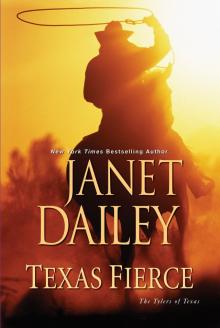 Texas Fierce
Texas Fierce Sentimental Journey
Sentimental Journey The Pride of Hannah Wade
The Pride of Hannah Wade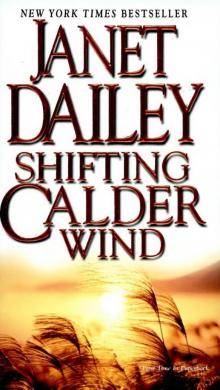 Shifting Calder Wind
Shifting Calder Wind Santa In Montana
Santa In Montana Legacies
Legacies Land of Enchantment
Land of Enchantment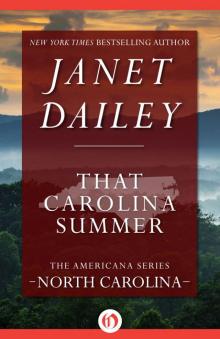 That Carolina Summer (North Carolina)
That Carolina Summer (North Carolina) Reilly's Woman
Reilly's Woman Refuge Cove
Refuge Cove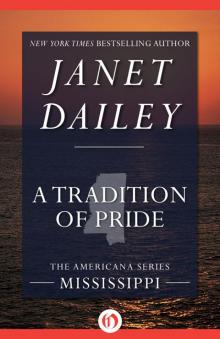 A Tradition of Pride
A Tradition of Pride Bed of Grass
Bed of Grass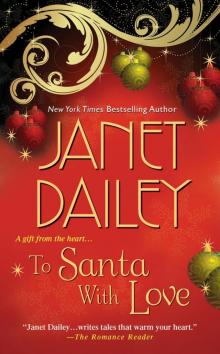 To Santa With Love
To Santa With Love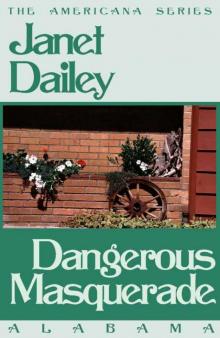 Dangerous Masquerade
Dangerous Masquerade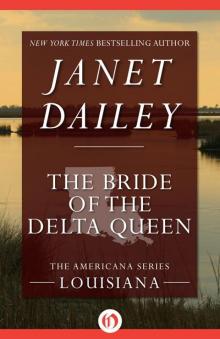 The Bride of the Delta Queen (The Americana Series Book 18)
The Bride of the Delta Queen (The Americana Series Book 18) Six White Horses
Six White Horses Valley of the Vapours (The Americana Series Book 4)
Valley of the Vapours (The Americana Series Book 4)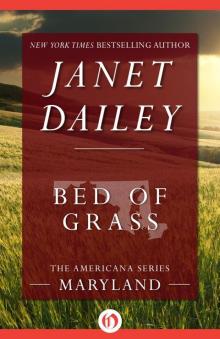 Bed of Grass (The Americana Series Book 20)
Bed of Grass (The Americana Series Book 20) The Indy Man (The Americana Series Book 14)
The Indy Man (The Americana Series Book 14) After the Storm (The Americana Series Book 6)
After the Storm (The Americana Series Book 6) Heiress
Heiress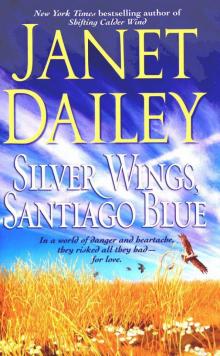 Silver Wings, Santiago Blue
Silver Wings, Santiago Blue The Rogue
The Rogue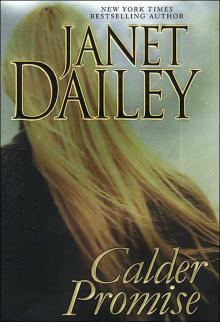 Calder Promise
Calder Promise Texas True
Texas True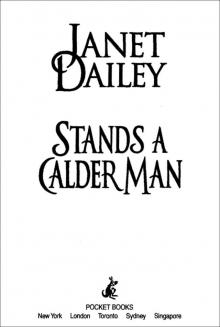 Stands a Calder Man
Stands a Calder Man Fiesta San Antonio
Fiesta San Antonio Fire and Ice
Fire and Ice For the Love of God
For the Love of God The Ivory Cane
The Ivory Cane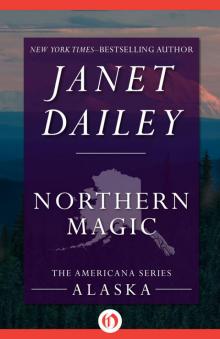 Northern Magic
Northern Magic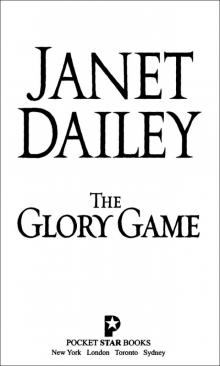 The Glory Game
The Glory Game The Homeplace
The Homeplace The Great Alone
The Great Alone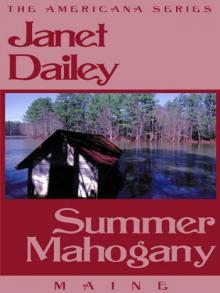 Summer Mahogany
Summer Mahogany Tangled Vines
Tangled Vines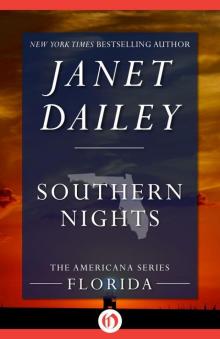 Southern Nights: Florida (The Americana Series Book 9)
Southern Nights: Florida (The Americana Series Book 9)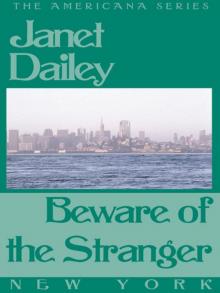 Beware of the Stranger
Beware of the Stranger Big Sky Country: Montana (The Americana Series Book 26)
Big Sky Country: Montana (The Americana Series Book 26)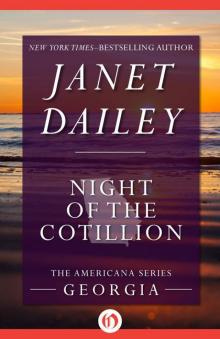 Night of the Cotillion: Georgia (The Americana Series Book 10)
Night of the Cotillion: Georgia (The Americana Series Book 10)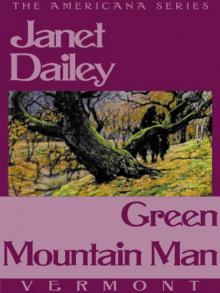 Green Mountain Man
Green Mountain Man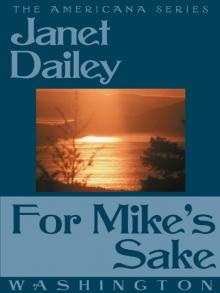 For Mike's Sake
For Mike's Sake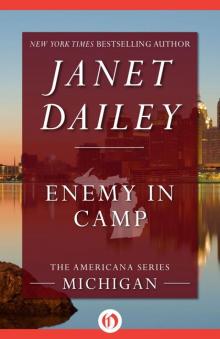 Enemy in Camp (The Americana Series Book 22)
Enemy in Camp (The Americana Series Book 22)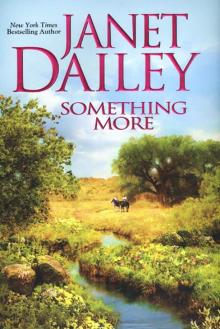 Something More
Something More Rivals
Rivals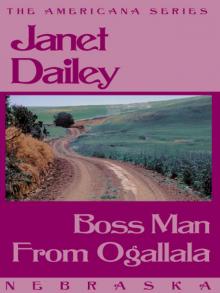 Boss Man from Ogallala
Boss Man from Ogallala Just a Little Christmas
Just a Little Christmas Sunrise Canyon
Sunrise Canyon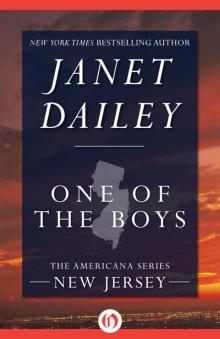 One of the Boys (New Jersey)
One of the Boys (New Jersey)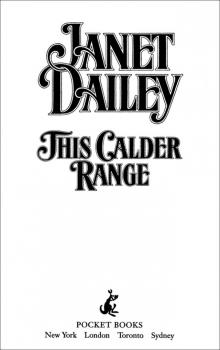 This Calder Range
This Calder Range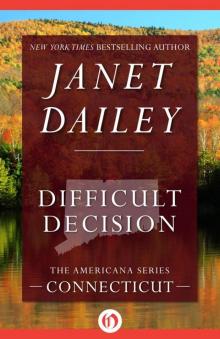 Difficult Decision: Connecticut (The Americana Series Book 7)
Difficult Decision: Connecticut (The Americana Series Book 7) Honor
Honor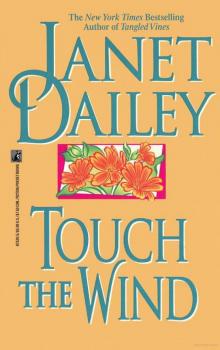 Touch the Wind
Touch the Wind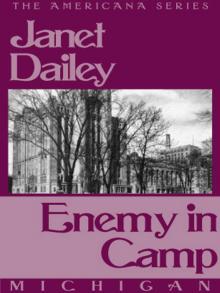 Enemy in Camp
Enemy in Camp Show Me
Show Me No Quarter Asked
No Quarter Asked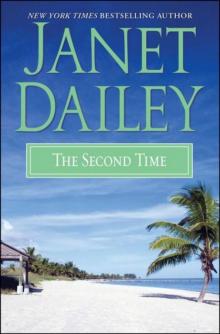 The Second Time
The Second Time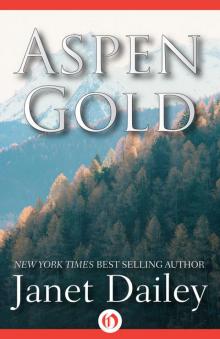 Aspen Gold
Aspen Gold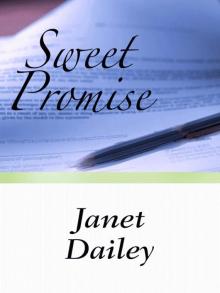 Sweet Promise
Sweet Promise Triumph
Triumph Savage Land
Savage Land Fire and Ice (The Americana Series Book 5)
Fire and Ice (The Americana Series Book 5)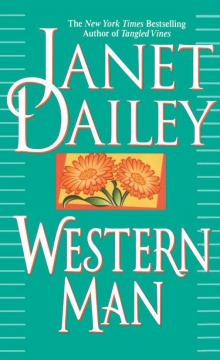 Western Man
Western Man The Traveling Kind
The Traveling Kind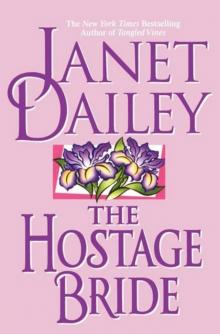 The Hostage Bride
The Hostage Bride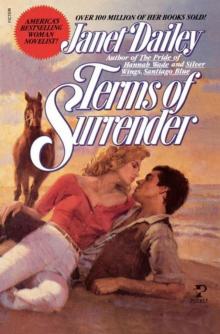 Terms of Surrender
Terms of Surrender Tidewater Lover
Tidewater Lover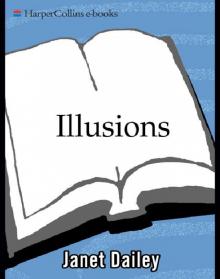 Illusions
Illusions Texas Free
Texas Free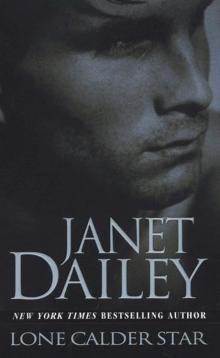 Lone Calder Star (Calder Saga Book 9)
Lone Calder Star (Calder Saga Book 9)